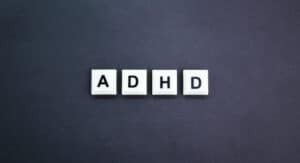Delray Beach, FL, Attention-Deficit Hyperactivity Disorder (ADHD) Treatment Center
Many people feel restless, have trouble getting organized, and/or find it hard to concentrate. Stress, competing priorities, and lack of sleep are often the culprits, and irregular bouts of these conditions are normal. But if these issues have troubled you throughout your life, you may have attention-deficit hyperactivity disorder (ADHD).
ADHD is a condition often found in children that can continue into adulthood. Untreated ADHD can strain relationships and performance in work and school. But while no cure for ADHD exists, effective treatments are available to help manage symptoms and improve a person’s ability to function. To receive a prompt diagnosis and related care, it’s important to first understand the signs and symptoms of ADHD.
If you or someone you love struggles with ADHD or another mental health condition, the Bishop Health mental health treatment center in Delray Beach, FL, can help. As a member of the Guardian Recovery Network, Bishop Health provides effective, personalized treatment programs and services to help individuals with symptoms of ADHD increase their ability to lead productive lives. Offering cutting-edge therapies—including ketamine therapy, transcranial magnetic stimulation, and more—Bishop Health provides empathetic and compassionate evidence-based care.
What Is Attention-Deficit Hyperactivity Disorder (ADHD)?
ADHD is a brain disorder that makes it difficult to concentrate, remain calm, and/or resist impulses. The symptoms of ADHD can interfere significantly with an individual’s daily activities and relationships. Adults with ADHD may find it challenging to concentrate on their work and hold down a job. Children usually exhibit behavioral issues in and out of school and have trouble following directions.
According to data from the Centers for Disease Control and Prevention (CDC), ADHD is among the most common neurodevelopmental disorders in childhood. In fact, an estimated 9.8% of U.S. children aged 3-17 (i.e., 6 million individuals) have been diagnosed with ADHD.(1)
Types of ADHD
Based on an individual’s symptoms, three different types (aka presentations) of ADHD can occur.
ADHD Presentations Include:(1)
- Predominantly Inattentive Presentation (ADHD-PI) — This condition, commonly referred to as ADD, is diagnosed when a person is easily distracted or forgets details of daily routines. They may find it difficult to organize or finish a task or follow instructions or conversations.
- Predominantly Hyperactive-Impulsive Presentation (ADHD-PH) — This is a type of ADHD that presents as restlessness, talkativeness, impulsivity, and an inability to remain still. Those with ADHD-PH may frequently interrupt conversations, grab items from others, speak at inappropriate times, and have trouble paying attention to directions.
- Combined Presentation — People with this type of ADHD experience all of the above symptoms.
Factors & Causes Related to ADHD
While several studies suggest that genes play a large role in the development of ADHD, researchers still aren’t certain what causes the condition. However, the National Institute of Mental Health indicates that it likely results from several factors including genetics, environmental factors, and perhaps social environments, nutrition, and brain injuries.(2)
According to the Mayo Clinic, additional risk factors for ADHD include:(3)
- Exposure to environmental risks (e.g., lead)
- Maternal drug, alcohol, or tobacco use during pregnancy
- Premature delivery
Recognizing the Common Signs & Symptoms of ADHD
People with ADHD show a persistent pattern of inattention, hyperactivity, or impulsivity that interferes with functioning or development.
Child ADHD Signs & Symptoms Include:(1)
- Daydreaming
- Forgetting or losing things
- Squirming or fidgeting
- Talking too much
- Making careless mistakes or taking unnecessary risks
- Having a hard time resisting temptation
- Having trouble taking turns
- Having difficulty getting along with others
Adult ADHD Signs & Symptoms Include:(4)
- Impulsiveness
- Disorganization and prioritization problems
- Poor time management skills
- Poor planning
- Problems staying focused on tasks
- Problems commencing and completing tasks
- Trouble multitasking
- Excessive activity or restlessness
- Low frustration tolerance
- Frequent mood swings
- Anger issues
- Trouble coping with stress
Evaluating & Diagnosing Adult ADHD
Diagnosing ADHD can be challenging, as no single test confirms the presence of the condition. The disorder also shares similar symptoms with other behavioral health issues such as anxiety, depression, sleep problems, and certain learning disabilities, which can further complicate its diagnosis.
When a healthcare provider suspects ADHD, they may begin with a physical exam, including vision and hearing tests, along with a family and personal history to rule out other issues. If no other source is found, providers often use a set of criteria provided in the American Psychiatric Association’s Diagnostic and Statistical Manual (DSM-5).(5)
DSM-5 Criteria Used To Diagnose ADHD Include:(5)
- Often fails to give close attention to details or makes careless mistakes in schoolwork, at work, or with other activities.
- Often has trouble holding attention on tasks or play activities.
- Often does not seem to listen when spoken to directly.
- Often does not follow through on instructions and fails to finish schoolwork, chores, or duties in the workplace (e.g., loses focus, side-tracked).
- Often has trouble organizing tasks and activities.
- Often avoids, dislikes, or is reluctant to do tasks that require mental effort over a long period of time (such as schoolwork or homework).
- Often loses things necessary for tasks and activities (e.g. school materials, pencils, books, tools, wallets, keys, paperwork, eyeglasses, mobile telephones).
- Is often easily distracted.
- Is often forgetful in daily activities.
Outpatient ADHD Treatment at Our Delray Beach Mental Health Clinic
The Bishop Health mental health treatment center in Delray Beach, FL, starts any form of mental health treatment with a detailed psychiatric evaluation. Based on our findings, we’ll customize a treatment plan for your unique needs, as well as provide access to professionals specializing in those treatments. Many psychiatric conditions—such as ADHD, obsessive compulsive disorder, post-traumatic stress disorder (PTSD), bipolar disorder, depression, anxiety, and eating disorders—require specialized therapy and prescription medications to manage symptoms. We will help you understand your condition and explain how psychiatric treatment in Delray Beach can change and improve your life.
Treatment & Therapy Options for ADHD
In most cases, ADHD is treated with a combination of behavioral therapy and medication appropriate for the patient’s age. For younger children, behavior and parental training are the first line of treatment. While symptoms can be similar, every case is unique. The most effective approach depends on the needs of the individual. All effective treatment plans include close monitoring, follow-ups, and making necessary changes.
Behavioral Therapy
Behavioral therapy can be used alone or in combination with medication. While behavioral therapy will not treat the symptoms of ADHD, it can help both young people and adults learn to control negative behaviors, replacing them with positive ones. It can also foster development of strategies that help them stay organized, increase focus, and control impulses.
When behavioral therapy is used with children, parents or guardians must work with the therapist to set goals and learn how to use behavioral techniques at home and in school.
Adults with ADHD often take part in cognitive behavioral therapy (CBT), which helps them recognize how their thoughts affect their behavior, enabling them to have more control over their ADHD symptoms.
Medication
Medication can help children and adults manage their ADHD symptoms and control behaviors that cause difficulties with family, friends, school, and work.The NIMH outlines the following medications for ADHD symptoms.(2)
Stimulants are the most common type of medication used for ADHD. They work by increasing dopamine and norepinephrine levels in the brain. These neurotransmitters play important roles in the ability to pay attention, think, and stay motivated. Between 70–80% of children with ADHD have fewer symptoms when taking these medications. Stimulants are controlled substances, which means there is a chance of becoming dependent on them. So it is essential to only take them as prescribed by a healthcare provider.
Nonstimulants were approved for the treatment of ADHD in 2003. They are not controlled substances and do not work as quickly as stimulants. It may take three or four weeks to feel the full effects of these medications; however, they can also help improve attention, focus, and impulsivity and can last up to 24 hours. Nonstimulants are usually prescribed when:
- Stimulants don’t work
- Stimulant medications are causing severe side effects
- A healthcare provider wants to pair it with a stimulant to increase effectiveness
About ADHD Treatment at Bishop Health – Delray Beach
Bishop Health offers a variety of effective and progressive behavioral health treatment options and psychiatry services to clients in Portland, ME, and Delray Beach, FL. As a full-service mental health center, Bishop Health provides comprehensive and innovative care. Our licensed and experienced staff members deliver the highest quality care, ensuring you or your loved one are equipped to experience success in recovery. We provide a range of evidence-based treatments facilitated by our highly trained clinicians in a comfortable, safe, and supportive environment.
If you or a loved one have been struggling with a mental health concern, including ADHD, depression, severe anxiety, or unresolved trauma, we can provide you with comprehensive, state-of-the-art care that fosters long-term recovery. Contact us for a free, no-obligation health insurance benefits check and begin your healing journey today.
(We do not share your data with anybody, and only use it for its intended purpose)



